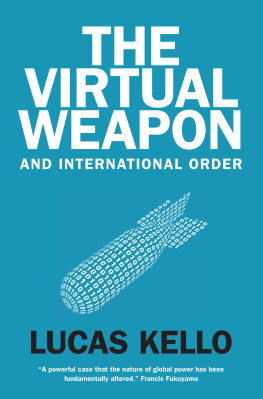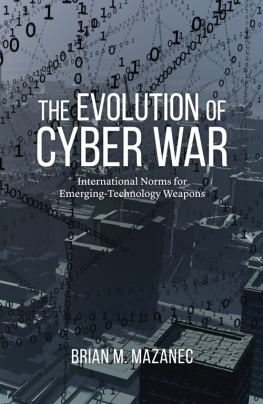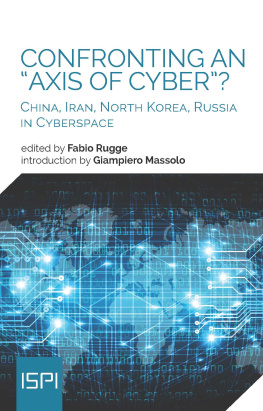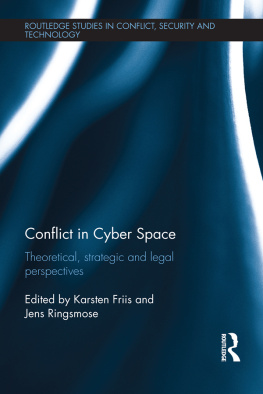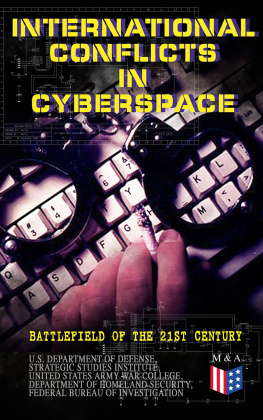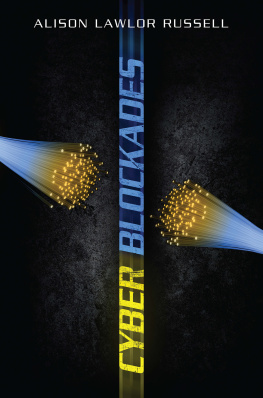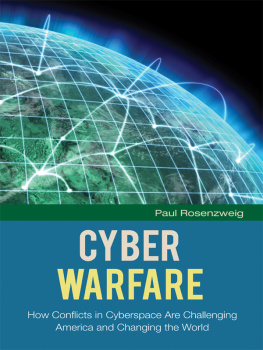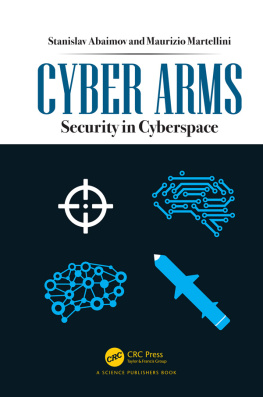THE VIRTUAL WEAPON AND INTERNATIONAL ORDER

Copyright 2017 Lucas Kello
All rights reserved. This book may not be reproduced in whole or in part, in any form (beyond that copying permitted by Sections 107 and 108 of the U.S. Copyright Law and except by reviewers for the public press) without written permission from the publishers.
For information about this and other Yale University Press publications, please contact:
U.S. Office:
Europe Office:
Set in Adobe Caslon Pro by IDSUK (DataConnection) Ltd
Printed in Great Britain by TJ International Ltd, Padstow, Cornwall
Library of Congress Cataloging-in-Publication Data
Names: Kello, Lucas, author.
Title: The virtual weapon and international order / Lucas Kello.
Description: New Haven, [CT] : Yale University Press, [2017]
Identifiers: LCCN 2017022267 | ISBN 9780300220230 (alk. paper)
Subjects: LCSH: Cyberspace operations (Military science) | CyberspaceSecurity measures. | CyberspaceGovernment policy. | Security, International.
Classification: LCC U167.5.C92 K46 2017 | DDC 355.4dc23
LC record available at https://lccn.loc.gov/2017022267
A catalogue record for this book is available from the British Library.
10 9 8 7 6 5 4 3 2 1
To Stanley Hoffmann
Contents
Tables
Acknowledgments
An author who writes a book on cyber issues at Oxford University is in a fortunate place. He has access to a vibrant network of thinkers in multiple disciplines. At his disposal are the intellectual resources of established scholarly initiatives, including the Cyber Studies Programme, the Centre for Doctoral Training in Cyber Security, and the Oxford Internet Institute. Many universities today recognize the necessity for cyber studies. Some have established research projects in this field of study. But few operate, like Oxford, an organized network to coordinate their varied efforts. I have benefited more than I can recount from the intellectual companionship of this extraordinary community of scholars.
I wrote this book under the auspices of the Cyber Studies Programme at Oxford Universitys Centre for Technology and Global Affairs. The program has developed a multidimensional procedure for the stimulation of ideas. This procedure involves a seminar series, specialized workshops, and irregular but ongoing meetings with affiliated faculty, visiting fellows, external practitioners, and students. The program, the center, and the Department of Politics and International Relations that houses them have provided unobtrusive administrative support in the preparation of the manuscript. Other institutions also supported this work. on active defense in the private sector grew out of a workshop sponsored by U.S. Cyber Command and hosted by Stanford Universitys Center for International Security and Cooperation.
The generous advice of many experts provided guiding lights when exploring unfamiliar sometimes uncharted intellectual terrains. Andrew Martin and Ivan Martinovic helped me to navigate the technical world of machines. Richard J. Harknett was especially helpful in identifying and wading through the pitfalls of prevailing theory and strategy. James Sherr and Alex Pravda aided my journey through Russian history and doctrine; Katy Minshall helped in the collection of primary sources. Richard Caplan, Dave Aitel, Max Smeets, Florian Egloff, Jamie Collier, James Shires, and Benjamin Daus-Haberle all read parts of the manuscript. Their generous advice saved me from errors of fact and interpretation. Discussions with practitioners helped me to fill gaps in the public record. I profited in particular from discussions with Sorin Ducaru, Christian-Marc Liflnder, Marina Kaljurand, Nick Alexander, and David Pickard. Each of them contributed a crucial resource without which a book of this sort would be impossible: a sense of the practical dimensions of new security challenges and of attempts to overcome them. The job of these men and women is unenviable: they must defeat relentless threats even as new technology undermines the assumptions of their actions. I am grateful to Karen Motley of the Harvard Kennedy School and to Taiba Batool and Melissa Bond of Yale University Press for their extremely helpful editorial guidance.
I owe a special debt of gratitude to Venkatesh Narayanamurti and Kalypso A. Nicoladis the former for encouraging me (with uncommon zeal) to fuse modern technology and political science, the latter for helping me to erect in Oxford an institutional shelter in which to pursue this vocation. The inspiration of Stanley Hoffmann, a late mentor to whom this book is dedicated, permeates these pages. Hildengards support was vital; more so her unflagging patience and gentle understanding.
Introduction
A Permanent Revolution
Every historical era begins with a revolution: it comes of age when revolution becomes the new normal. The Reformation began when a disaffected Augustinian friar asked, What authority has the Pope? It achieved its peak when the schism in Christianity became a source not of religious war but of stable social structures. The Romantic period started with the philosophical challenge, What is a state if not also an integral nation? It matured when nationalism in Europe became less a cause of violence than of political cohesion. The present era, too, can be defined by a revolutionary question, one rooted in technology: what limits has space? For cyberspace, a defining motif of our era, smashes the constraints of geography on the speed and range of human action. Never before has technology permeated society so completely or influenced the dealings of states and peoples so intricately as in the present. Yet despite significant experience with the related technology, the cyber age remains in a revolutionary condition. We have yet to master the forces of change that define our times.
The distinguishing feature of revolution is that it challenges not just the rational but also the moral order. Contemporary observers struggle to make sense of both sets of problems as they relate to the virtual weapon of cyberspace malicious computer code designed to manipulate the functions of machines or else seize, corrupt, or disclose their sensitive data. This lag in understanding is especially acute in the study of international relations, a realm of inquiry whose intellectual fashion is to reject deep change in the states system as an outcome before it is even conceived as a theoretical premise.
Consider, first, the shock to the rational order of interstate relations. The virtual weapon is a recent addition to the arsenal of states, although some nations already regard it as an integral part of their armory. Its meaning for interstate strategic dealings is difficult to decipher. Only a limited record of events exists to orient this laborious learning process. The new capability, moreover, is scientifically complex and highly volatile. Even computer specialists do not fully grasp its behavioral properties or the consequences of its use, which may devastate modern society even if they fall below the traditional criterion of interstate violence on which the conventions of international law and diplomacy rest. There is also the problem of the technologys sheer speed of action. Released from the restrictions of the physical laws of motion, security crises transpire at a pace (often measurable in milliseconds) that even seasoned statesmen find difficult to manage.
Second, and more fundamental, is the disturbance of the moral order. Cyberspace empowers states whose basic goals sometimes grounded in a revolutionary domestic ideology, other times in the perverse visions of despots are incompatible with the fundamental purpose of international society: the preservation of a minimum measure of order and peace. More elementally, the technology also empowers nontraditional players proxy militias, political hacktivists, private corporations, extremist militant groups, and even lone agents who may seek to undermine the political order, who may reject or fail to understand the complex conditions of peace and stability among states co-existing in the international jungle, and whom the traditional apparatus of diplomacy struggles to absorb because such players are not recognized state entities. New entrants onto the international scene who were traditionally barred from geopolitics are now able to disrupt it, at times decisively, via cyber politics.
Next page
